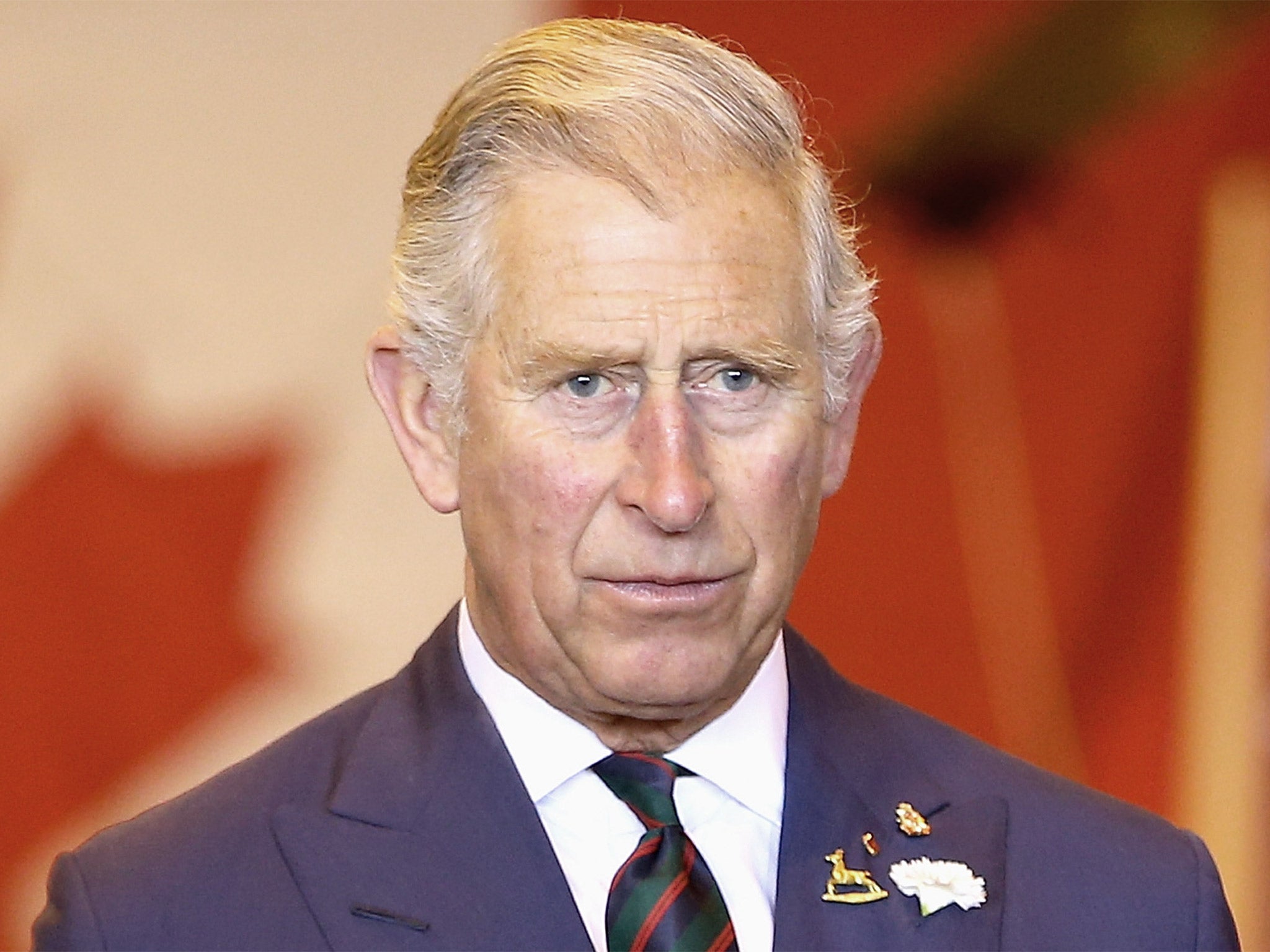Prince Charles lobbied Government on behalf of private landowners over flood defences
Heir to the throne's letters have been branded 'self-serving attempts to influence policy'

Your support helps us to tell the story
From reproductive rights to climate change to Big Tech, The Independent is on the ground when the story is developing. Whether it's investigating the financials of Elon Musk's pro-Trump PAC or producing our latest documentary, 'The A Word', which shines a light on the American women fighting for reproductive rights, we know how important it is to parse out the facts from the messaging.
At such a critical moment in US history, we need reporters on the ground. Your donation allows us to keep sending journalists to speak to both sides of the story.
The Independent is trusted by Americans across the entire political spectrum. And unlike many other quality news outlets, we choose not to lock Americans out of our reporting and analysis with paywalls. We believe quality journalism should be available to everyone, paid for by those who can afford it.
Your support makes all the difference.Prince Charles has again been lobbying government officials over public policy, it has been revealed.
In one of a series of letters sent to the Environment Agency, the Prince complained about “unreasonable” cuts to maintain flood defences on private land.
The published letter asked Sir Philip Dilley, then head of the Environment Agency, to “look into this decision”.
The Prince himself owns vast swathes of land, much of it in Cornwall, but it was claimed he was communicating with the Environment Agency on behalf of other private landowners. Critics have said the letter was a “self-serving attempt to influence policy”.
The letter, obtained through a Freedom of Information request by the Mail on Sunday, was written by Michael Whitehead, assistant private secretary to the Prince, on 18 November 2015 and addressed to Sir Philip.
The major flooding in Great Britain began on 5 December with Storm Desmond, and heavy rain continued into January 2016.
Mr Whitehead wrote:
“Dear Sir Philip,
“Thank you so much for having spared the time to see me last Wednesday afternoon when you visited Clarence House. I must say that it was a great pleasure to meet you in person, and to understand more about the work of the Environment Agency in these challenging times.
“You will recall that we briefly spoke about the difficulties that some private rural landowners are facing with the withdrawal of Environment Agency support and, in acceptance of your kind invitation to follow-up about this, I did just want to convey some of the concerns that The Prince of Wales has heard recently, particularly with regard to…
[redacted]
[redacted]
[redacted]
“I therefore wonder whether you might look into this decision, because, if nothing else on a strictly moral basis, it would seem to be rather unreasonable.
“Out of courtesy to His Royal Highness, perhaps you could let me know your thoughts about this as and when time permits, so that I might brief him accordingly.”
There is also a paragraph which requests a policy paper with Sir Philip's “background thoughts” on it and talk of a possible trip to the Thames Barrier. It is unclear how long the redacted sections were or what they referred to.
Anti-monarchy campaign group Republic reacted angrily to the revelations.
“Whatever the rights or wrongs of flood defence policy Charles needs to keep out of politics – that’s the deal if he wants to be King,” Graham Smith, CEO of Republic, told The Independent.
“He is directly lobbying for public money to be spent in support of major landowners when public services are stretched and facing serious cuts.
"These self-serving attempts to influence policy are why we need a change to the Freedom of Information laws, so we can see the extent of Charles’s lobbying and the impact it is having.”
A Clarence House spokesperson told The Independent: “The Prince works hard to support flood-hit communities around the UK, often visiting them at times of crisis, listening to their concerns and lending vital support through his Countryside Fund and Business Emergency Resilience Group (BERG).
“The letters warned against the unintended consequences which may result from the Environment Agency transferring liability for flood defence maintenance and flood damage to individuals.”
The Environment Agency denied Prince Charles had been given any preferential treatment and said flood risk maintenance work was carried out in accordance with where it would benefit people and property most at risk, irrespective of land ownership.
A spokesperson told The Independent: “The Environment Agency will spend £1 billion on flood risk maintenance work between now and 2021. The Government has made changes which makes it easier for landowners to carry out maintenance of smaller rural watercourses on their land, enabling us to focus on flood risk management where it will have the most benefit to people and property.”
Prince Charles has an extensive history of attempting to contact government officials regarding policy and procedure. In 2013, it was revealed he had privately met with cabinet ministers at least 36 times in three years.
At the time, Clarence House said it was the Prince’s “right” to “communicate privately with the Government on any matter he chooses.”
More recently, the ‘Black Spider Memos’ caused further controversy. So-called because of the distinctive handwriting, the collection of letters and notes were written by Prince Charles to serving British politicians.
The correspondence raised concerns over issues such as public health - after he argued in favour of homeopathy- wildlife, nature and architecture.
Join our commenting forum
Join thought-provoking conversations, follow other Independent readers and see their replies
Comments